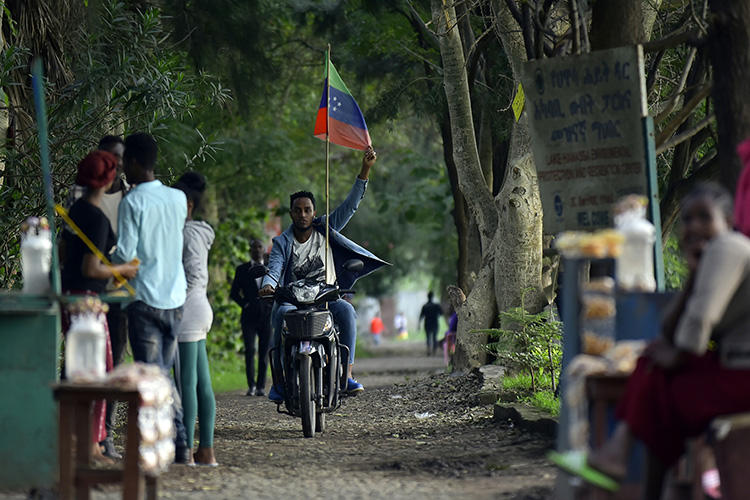Nairobi, August 9, 2019–The Committee to Protect Journalists today called on authorities in Ethiopia to disclose the charges against three media workers from the Sidama Media Network or release them immediately, and to guarantee that journalists operating in southern Ethiopia can report freely.
On the evening of July 18, security personnel in Hawassa, the capital of Ethiopia’s Southern Nations, Nationalities and Peoples’ Region (SNNPR), arrested two managers, Getahun Deguye and Tariku Lemma, and two board members, Belay Belguda and Girma Chuluke, from the Sidama Media Network (SMN), according to a report by BBC Amharic as well as a diaspora-based activist who has followed the issue and an employee at the station, both of whom asked CPJ not to name them for safety concerns. Girma was released unconditionally after a few hours, according to the employee and the activist.
Earlier that day, security personnel had gone to the SMN offices in Hawassa, where they took the office keys and ordered the journalists to disperse. Journalists were allowed back to the office on July 23 but did not fully resume work until July 25 because they were still concerned for their safety, according to the activist and the employee who spoke to CPJ. The station continued to air content from its South Africa offices.
The arrests and closure of the station came amid unrest in parts of the state, as activists protesting the delay of a referendum to establish a separate regional state for the Sidama ethnic group clashed with security forces, according to media reports and a report from the U.N. Office for the Coordination of Humanitarian Affairs (OCHA). At least 25 people were killed in the clashes, according to the BBC; hundreds were displaced, according to the United Nations; and authorities said they were arresting individuals who participated in the protest, according to the news site Addis Standard.
SMN was established to serve the Sidama ethnic group and is aligned with the movement for statehood, the activist told CPJ. He said he believes the station was closed down and its staff targeted as part of a wider crackdown on the movement and because SMN is perceived as a “voice for [the] Sidama cause.” He said efforts to stifle the flow of information also included an internet shutdown and mobile network disruption, which was also reported by the BBC. CPJ’s sources last week said that the internet shutdown had been lifted.
The SMN managers and the board member were brought to court in Hawassa on July 22, and during their appearance authorities asked for 10 days to investigate; however, the allegations they face are unclear, according to the activist and the employee. On August 1, the court granted authorities 10 more days to carry out investigations into the SMN board member and managers, as well as six other detainees who appeared alongside them, according to the activist and a Hawassa-based academic, who also asked not to be named.
“The political leaning of Sidama Media Network or its staff does not justify detaining its employees for weeks without charge or shutting down the station. Authorities should make room for diverse voices, in line with the government’s stated commitments to press freedom and freedom of expression,” said CPJ Sub-Saharan Africa Representative Muthoki Mumo. “We urge authorities to disclose their case against Tariku Lemma, Getahun Deguye, and Belay Belguda, or release them immediately. They should also cease intimidation of the media.”
Getahun, Tariku, and Girma were arrested while attending a meeting at a local Hawassa church on July 18. The activist told CPJ that the meeting brought together local elders and leaders to develop a strategy following a day of protests. CPJ’s sources said that the SMN staff were to be consulted on this process. The BBC reported that the SMN staff were at the meeting due to their involvement in the movement. The employee and the academic said that they were also expected to cover the meeting. SMN was expected to “disseminate the information immediately,” the employee said. At least one other person, Fassika Legese, an activist in the movement for statehood, was arrested during the meeting, according to the academic. It is unclear where Belay, who was also a leader of the technical task force preparing for Sidama regional statehood, was at the time of his arrest.
Following emails on July 25 and August 1, the press secretariat of the Ethiopian Prime Minister Abiy Ahmed today referred CPJ to the regional press secretary, Fikre Aman, for comment. Fikre did not immediately respond an email from CPJ today. The police chief in the sub-region, Commander Dagnachew Demissie, did not respond to calls on August 2 and August 6, or a text message from CPJ.
